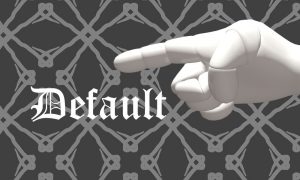
Lebanon’s Sovereign Default Gets Worse as Economy Shakes over U.S. Dollar Shortage
Posted on 03/20/2020
A sovereign default in U.S. dollar-denominated debt has rattled Lebanon and its US$ 54 billion economy. The failure will make it more difficult for the country to lure foreign investment. The International Monetary Fund’s (IMF) Mission Chief to Lebanon, Annalisa Fedelino, has stated that her organization is watching for Lebanon to create a sovereign wealth fund which uses revenue from the oil industry, but was quick to add that the possible fund “Would not substitute for a fiscal consolidation and debt reduction strategy.” A sovereign wealth fund now looks less likely in the near term. Lebanon has never failed to pay its debt until the recent US$ 1.2 billion that came due was not paid. Lebanon’s default is not connected to the Wuhan coronavirus (COVID-19), but the virus has caused additional economic stress in the country.
On March 9, 2020, Lebanon did not repay a US$ 1.2 billion Eurobond. This was the first sovereign debt in Lebanon’s history. Even during the high-causality sectarian civil war in the 1980s, Lebanon did not default on its debts. The Lebanese government owes US$ 92 billion. Newly-appointed Lebanon Prime Minister Hassan Diab said: “Our reserves have reached critical and dangerous levels. Today, we are paying the price for the mistakes of past years. Must we bequeath them to our children and the coming generations?” April will bring another US$ 700 million payment due, which now appears likely to also go unpaid. A US$ 600 million payment follows that.
Ashmore Group
Experts say Lebanon faces a sovereign debt crisis, currency problems, and an unstable banking industry all at the same time. London’s Ashmore Group has been identified as the largest foreign holder of Lebanon’s government bonds. Ashmore Group specializes in emerging markets. The IMF had already sent a team to Beirut to explore a possible bailout. It is unclear whether the IMF will work with Lebanon’s Hezbollah-endorsed government. Hezbollah has been resistant to accepting the IMF.
Lebanese people have been protesting the government and its policies. Citizens of the country say the 2008 crisis was never properly handled, and that it led directly to the problems of today. There is a widespread belief that powerful organizations are being helped at the expense of the common people. In the last two years US$ 12 billion has left Lebanese banks due to a lack of confidence in the country.
The Lebanese pound is officially pegged to the U.S. dollar, but lost more than 40% of its currency value in the black market. Lebanese banks are capping U.S. dollar withdrawals, some banks for as low as US$ 100 per week. The U.S. dollar shortage has impacted Lebanon’s healthcare system, draining the country of needed supplies to combat the fast-spreading COVID-19 virus.
